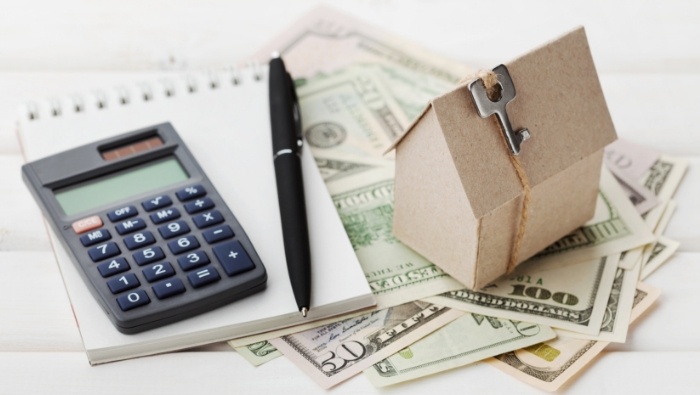How Mortgage Prepayments Work
by Gary Foreman

There are many benefits to paying off your mortgage early, but if you don’t do it right, you won’t see savings. Take these steps to prepay your mortgage the right way.
Gary,
I once heard a financial planner say you can reduce the number of years it takes to pay your house off. She said that if you make one extra house payment a year, you could reduce a 30-year mortgage to 22 years and a 15-year mortgage to 12 years. Can you please explain how this works?
RM in FL
What RM heard was generally correct. But the number of years you can knock off your mortgage depends on how high or low your interest rate is. Let’s explore mortgage prepayments and how to make them work.
The Biggest Benefit of Paying Off Your Mortgage Early
First, recognize that there’s a significant advantage to getting your mortgage paid off. It frees up a sizable amount each month that can be used for other things. Yes, it’s a big long-term goal. But, unlike other distant goals, you don’t need to get to the finish line to benefit from your efforts. Even if you only prepay the principal one time, it will make every regular payment after that more efficient.
RM will want to get familiar with something called an “amortization table.” It shows month-by-month how much of each payment goes to paying interest, how much to reducing principal and what the remaining mortgage balance is.
The Math Behind Making One Extra Mortgage Payment Per Year
The key factor in paying off any mortgage is how much of the monthly payment reduces the principal amount owed. For instance, RM would be in the 18th year of the 6%, 30-year mortgage before half of his payment went to principal repayment.
A 30-year mortgage for $250,000 at 6% interest will earn the mortgage company $290,160 in interest. The monthly payment (for just the principal and interest) will be $1,498 But in the first month, only $248 of principal will be repaid.
What happens if RM does make an extra payment each year? Fortunately, a mortgage calculator does the math for us. I’m partial to this one at Bankrate.com.
One extra payment per year would reduce the length of the loan by five years and five months. It also would reduce the amount of interest paid over the life of the loan to $227,105.
Sign Up for Savings
Subscribe to get money-saving content by email that can help you stretch your dollars further.
Twice each week, you'll receive articles and tips that can help you free up and keep more of your hard-earned money, even on the tightest of budgets.
We respect your privacy. Unsubscribe at any time.
How Interest Rates Affect Mortgage Prepayments
Back to RM’s question. Why doesn’t the annual prepayment reduce the 30-year mortgage to 22 years? It’s because of the low interest rates. The higher the rate, the more an extra payment will reduce the term.
Budget for One Extra Mortgage Payment Per Year
OK, so we agree that prepaying your mortgage is a good thing. But for most families making an extra mortgage payment doesn’t seem like a reasonable goal. Yet, it isn’t impossible. One way to be successful is to break it down into 12 monthly parts.
By adding $125 ($1498 divided by 12) to each monthly payment, RM would be doing the same thing as making one extra payment per year.
A simple change in lunch or entertainment habits could provide that much savings. Just think of it as trying to avoid spending $4.15 per day. Or, if reducing spending isn’t possible, perhaps RM could use his next salary increase for mortgage prepayment.
Should You Refinance Your Mortgage?
Refinancing your current mortgage could also be a solution. Instead of using the extra money for other things, continue making the same monthly payment you made before the refinancing.
Suppose that RM had a $250,000 8% mortgage and refinanced to 6%. The difference in payments is $336. But if RM continued to pay the $1,834 they had been paying before the refinancing, he’d have the mortgage paid off in 19 years and two months.
Before Prepaying Your Mortgage
Before you make any prepayments, you need to check your mortgage for two things. First, verify that prepayments are allowed. Second, ensure that any extra amounts you send in are applied to reducing principal. In fact, you’ll probably need to indicate on your check or the payment stub how much extra is meant for principal reduction.
It’s a good idea to make sure the bank applies any prepayments correctly. More than one person has had a prepayment applied as an “early payment” for the next payment due. That will not do you any good.
Reviewed October 2023
About the Author
Gary Foreman is the founder and former editor of The Dollar Stretcher. He has been featured in MSN Money, Yahoo Finance, Fox Business, The Nightly Business Report, US News Money, Credit.com and CreditCards.com.
Sign Up for Savings
Subscribe to get money-saving content by email that can help you stretch your dollars further.
Twice each week, you'll receive articles and tips that can help you free up and keep more of your hard-earned money, even on the tightest of budgets.
We respect your privacy. Unsubscribe at any time.
Wouldn't you like to be a Stretcher too?
Subscribe to get our money-saving content twice per week by email and start living better for less.
We respect your privacy. Unsubscribe at any time.
Popular Articles
On After50Finances.com
- 9 Things You Need to Do Before You Retire
- You Didn’t Save Enough for Retirement and You’re 55+
- When Empty Nesters Reorganize and Declutter Their Home
- Reinventing Your Career in Your 50s or 60s
- What Mature Homeowners Should Know about Reverse Mortgages
- 2 Reasons to Collect Social Security Benefits As Soon As Possible

